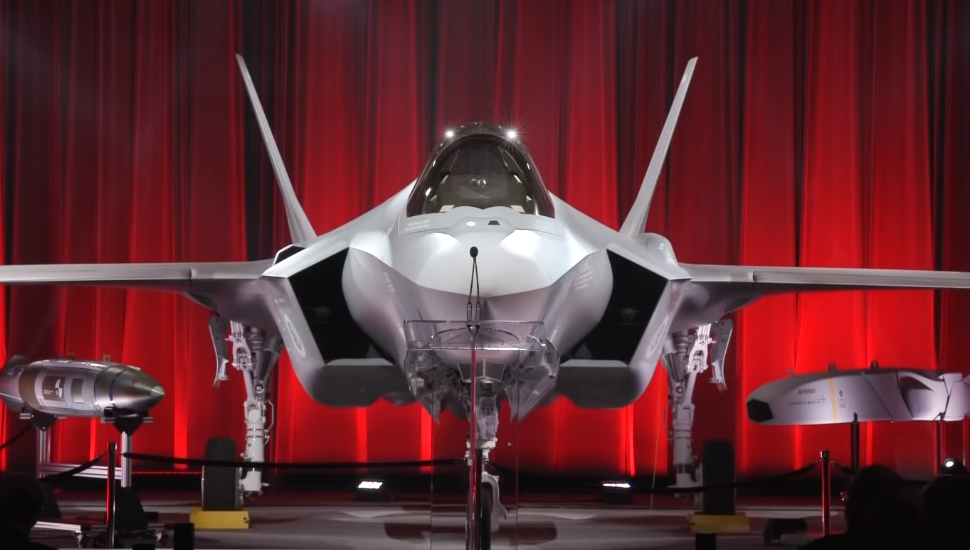The USA officially removed Turkey from the Joint Strike Fighter programme – the international effort to develop and manufacture the Lockheed Martin F-35 Lightning II stealth fighter – less than a week after the country received shipments of the first components of Russia’s S-400 anti-aircraft missile battery.
The Almaz-Antey S-400 Triumf’s anti-stealth capabilities are viewed by the USA as a threat to the F-35 stealth fighter, especially if the aircraft regularly comes within the surface-to-air missile and radar system’s range.
Washington has also said the Russian weapon can’t be networked with other NATO air defence systems, which it claims would make coordinating air defence with Ankara more difficult.

F-35A at ceremony for Turkey
Lockheed Martin
“As other US officials and I have clearly said, Turkey cannot field a Russian intelligence collection platform in proximity to where the F-35 programme makes, repairs and houses the F-35,” said Ellen Lord, under secretary of defense for acquisition and sustainment, in a press briefing on 17 July. “Much of the F-35’s strength lies in its stealth capabilities, so the ability to detect those capabilities would jeopardise the long-term security of the F-35 programme.”
The USA plans to spend $500-600 million in non-recurring engineering to shift the supply chain away from Turkish manufacturers by March of 2020, says Lord. Turkey made more than 900 parts for the F-35 and had been assigned more than $1 billion worth of industrial participation contracts across 10 Turkish companies. Turkish industry was projected to receive up to $12 billion in F-35 work over the life of the programme.
“To bridge the gap initially, to mitigate Turkey’s removal, the programme will use primarily US sources for Turkey’s workshare, but this will gradually open up to programme partners for first, second and third sources,” says Lord.
Lockheed Martin expects minimal impact to its production schedule.
“Over the last several months we’ve been working to establish alternative sources of supply in the United States to quickly accommodate Turkey’s current contributions to the programme,” the company says. “These actions will limit any future production or sustainment impact and we remain on track to meet our commitment of delivering 131 F-35s this year.”
Turkey had planned to buy 100 F-35A stealth fighters, about 20% of Lockheed Martin’s sales in Europe over the next decade.
Lord declined to comment on whether Turkish pilots or maintainers who are in the USA for training could provide Russia with intelligence on the F-35’s capabilities or radar cross section. All Turkish pilots and maintainers are supposed to leave the USA by 31 July and have firm plans to do so, she says.
The USA had offered Turkey the Raytheon Patriot surface-to-air missile system in place of the S-400, but the country had declined to purchase the American-made battery. David Trachtenberg, deputy under secretary of defense for policy, declined to say whether the Patriot was a better weapon.
“I’m not going to talk about specific capabilities and what is superior or what is inferior,” he says. “I will tell you, it is clear that we have offered the Patriot to Turkey on multiple occasions.”
Source: FlightGlobal.com


























